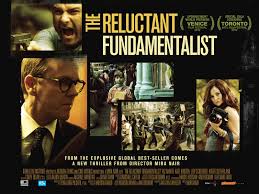Get On Up
by George Wolf
As a broke college student at Ohio State in 1985, I saved my pennies and stood in a line halfway down High St. to see Mr. Dynamite live at the Newport Music Hall.
My first cellphone ringtone was “Sex Machine.”
The point is, I love me some James Brown, and I really liked Get On Up.
It’s a bit of a relief, because with director Tate Taylor at the helm, I feared Brown’s story would get the same clichéd, soccer-mom-feel-good treatment Taylor gave The Help. Instead, buoyed by a meaty script from veteran writers Jez Butterworth and John-Henry Butterworth (Edge of Tomorrow/Fair Game) he takes some chances that pay dividends.
Get On Up breaks the “fourth wall” early and often, as Brown (Chadwick Boseman) looks the audience in the eye and reminds everyone how big a musical influence he remains to this day. This ignites a swagger that anchors the entire film, which, considering the subject, is the absolutely perfect vibe.
It ain’t braggin’ if you back it up, and Brown, warts and all, was one of the most important musical and cultural figures of the 20th century.
Taylor shows us Brown’s rags to riches story – from growing up in a Georgia brothel to easing tensions after Martin Luther King’s assassination – in scattershot fashion, dropping in on different periods without regard to chronology. Not only does this offer a stylistic alternative to similar films such Walk the Line and Ray, but it presents Brown as a sum of equal parts while also ensuring that any overt sentimentality is never given time to add weight.
Boseman is flat-out terrific, serving notice that his fine performance as Jackie Robinson in 42 was just a warm-up act. Boseman has Brown’s speaking voice, cocksure attitude and his incredible moves down cold, combining them all for a portrayal full of an electric charisma.
Anyone who remembers Eddie Murphy’s classic “James Brown Celebrity Hot Tub” from SNL knows how easily a Brown impersonation could slip into parody, but Boseman avoids any hint of it. His is a completely authentic performance that needs to be remembered in the coming award season.
From the early “chitlin circuit” tours, to the Apollo Theater to the legendary T.A.M.I. show, Taylor frames the live performance sequences with the cracking, cold sweat-inducing urgency that music this great demands. Kudos, too, to the sound editing department, frequently mixing Brown’s original vocal tracks into new arrangements, enabling wonderfully seamless film recreations.
Okay, so Brown’s personal demons could have been given more gravity, and there are a few biopic crutches (soul- searching in a dressing room mirror, for instance), but Taylor and the Butterworth boys score with the humanity they bring to two profound relationships in Brown’s life: his longtime friend Bobby Byrd (Nelsan Ellis) and his mother Susie (Viola Davis).
There’s true poignancy to the moments that find Susie, after a long absence, visiting her triumphant son backstage. It’s the film’s non-musical highlight, and yet another reminder of how little screen time Davis needs to be unforgettable.The same can be said for Brown’s music, and while this film will certainly thrill the fans, it’s good enough to win him plenty of new ones.
Get on up?
It’s pretty damn hard not to.

